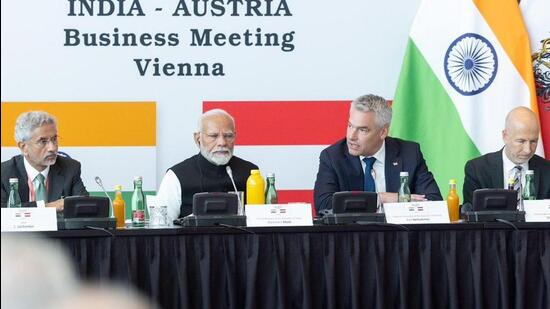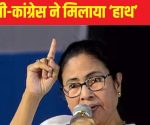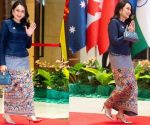Nehru facilitated Austria’s emergence as neutral country, says Chancellor

New Delhi: The role of India’s first premier Jawaharlal Nehru in complex negotiations that facilitated Austria’s emergence as a neutral and independent country in 1955 was highlighted by Austrian Chancellor Karl Nehammer at a media interaction with Prime Minister Narendra Modi on Wednesday.

Though Austria had a provisional government by the end of World War 2, it was occupied by France, the Soviet Union, the UK and the US, or the so-called Allied powers, after the defeat of Nazi Germany in 1945. These four countries signed a treaty in May 1955 to grant Austria independence and to facilitate the withdrawal of occupation forces.
Delivering a statement to the press alongside Modi, Nehammer referred to Nehru’s role while speaking of the relationship of trust between India and Austria that began in the 1950s.
“India, for Austria, was an important partner and a supporter when it came to bringing the peace negotiations, which resulted in the [Austrian] State Treaty, to a conclusion,” Nehammer said, speaking in German.
Also Read: India, Austria push for end to conflict in Ukraine
In a reference to the negotiations that preceded the treaty, he said: “There was a standstill in 1953, the situation was difficult. It was difficult to make progress with the Soviet Union, and it was foreign minister [Karl] Gruber who contacted Prime Minister Nehru…asking for support in the negotiations to bring them to a positive conclusion.”
He added, “This is what happened – India helped Austria and in 1955, the negotiations came to a positive conclusion with the Austrian State Treaty.”
Several historical documents and accounts, including declassified US diplomatic cables and Gruber’s memoir “A Political Life: Austria’s Journey Between Dictatorships”, have outlined Nehru’s role in conveying messages to the Soviet leadership after he was approached by the Austrian side.
In the 1950s, India followed the policy of non-alignment and had established good relations with the Soviet Union. Hans Köchler, a noted Austrian academic and president of the International Progress Organization, recounted Nehru’s behind-the-scenes role in the negotiations in a lecture delivered in 2021.
“One of the founders of the Non-Aligned Movement, Indian Prime Minister Jawaharlal Nehru, played a crucial role in Austria’s efforts. On 20 June 1953, he met with Austrian foreign minister Karl Gruber on the Bürgenstock Mountain above Lake Lucerne, Switzerland,” Köchler said.
Gruber asked for Nehru’s “good offices vis-à-vis the Soviet government in the matter of the deadlocked negotiations” on the treaty. “Gruber told [Nehru] – in the presence of India’s ambassador to Moscow, KPS Menon – that his government was considering offering ‘guarantees against Austrian participation in military alliances’ i.e., a constitutionally enshrined policy of permanent neutrality. He asked Nehru to convey this position to the Soviet authorities,” Köchler said.
Also Read: Russia will be ‘largest contributor’ to India’s energy security: Diplomat
Köchler also cited British historian John Wheeler-Bennett as saying that Nehru accepted the office of mediator, and Menon subsequently advanced the proposal during a conversation with Soviet foreign minister Vyacheslav Molotov.
Nehru’s role finds mention in a declassified diplomatic cable sent to the US State Department in June 1953 by the acting US high commissioner for Austria, Walter C Dowling, that was based on a conversation with Gruber.
Austria’s pledge to commit to a neutral status became part of the Moscow Memorandum of 1955, which paved the way for the Austrian State Treaty. Bruno Kreisky, who was minister of state in the Prime Minister’s Office in 1955 and later became Austria’s premier, later wrote: “So ist der Name Nehru für immer mit der Geschichte unserer Neutralität verbunden.” (Thus, the name of Nehru will forever be connected with the history of our neutrality.)
About a month after Austria gained full independence, Nehru became the first foreign leader to make a state visit to Vienna in June 1955.
Nehammer noted that Austria’s neutrality could help it play the role of a “bridge builder” in efforts to find a solution to the Ukraine crisis. “Austria will be available as a site for dialogue, making use of its unique position as a neutral country, a member of the EU but not a member of NATO,” he said.















